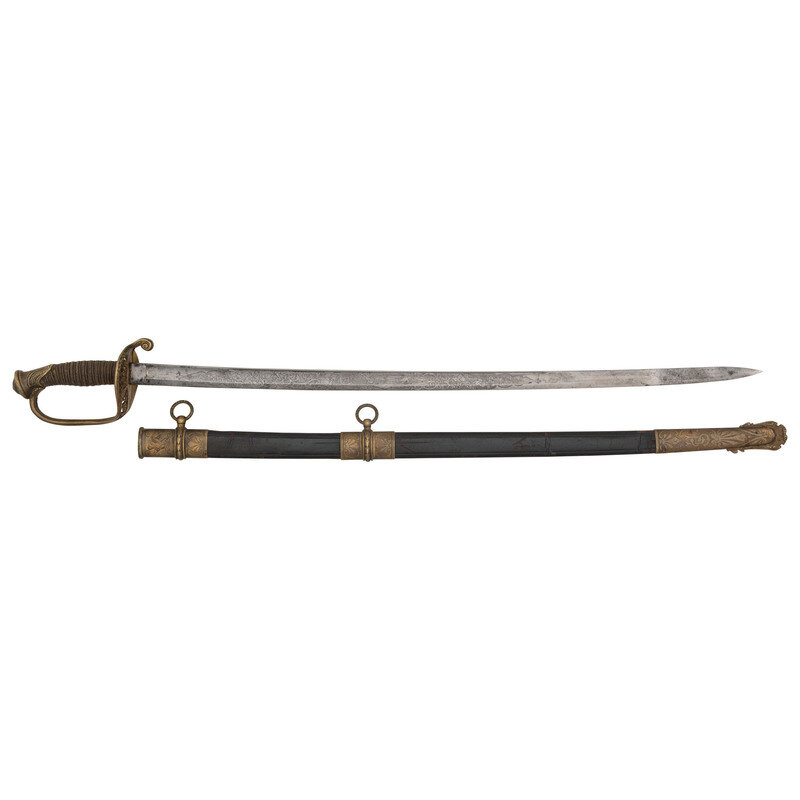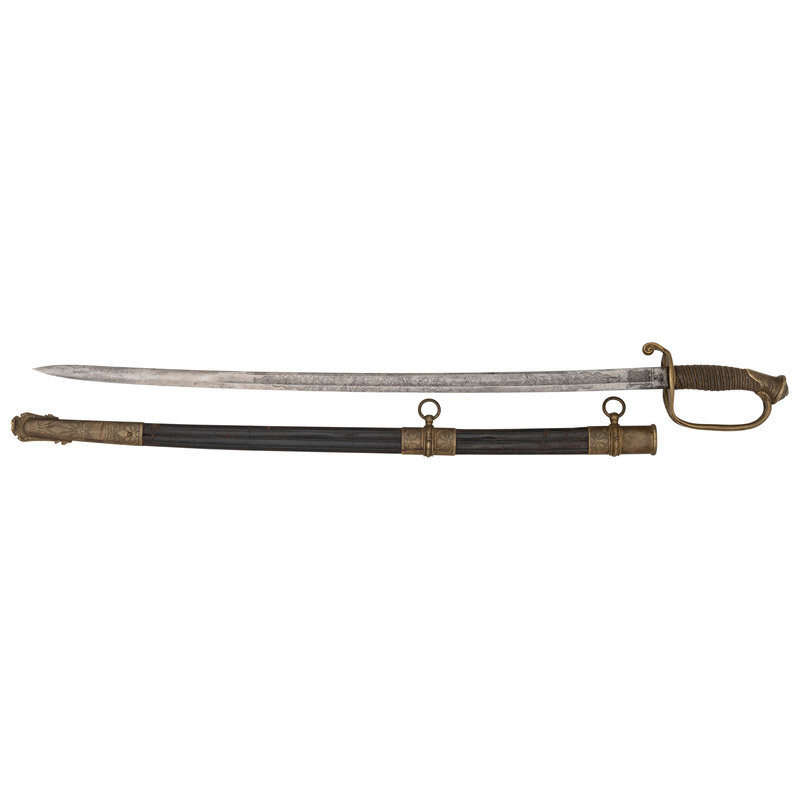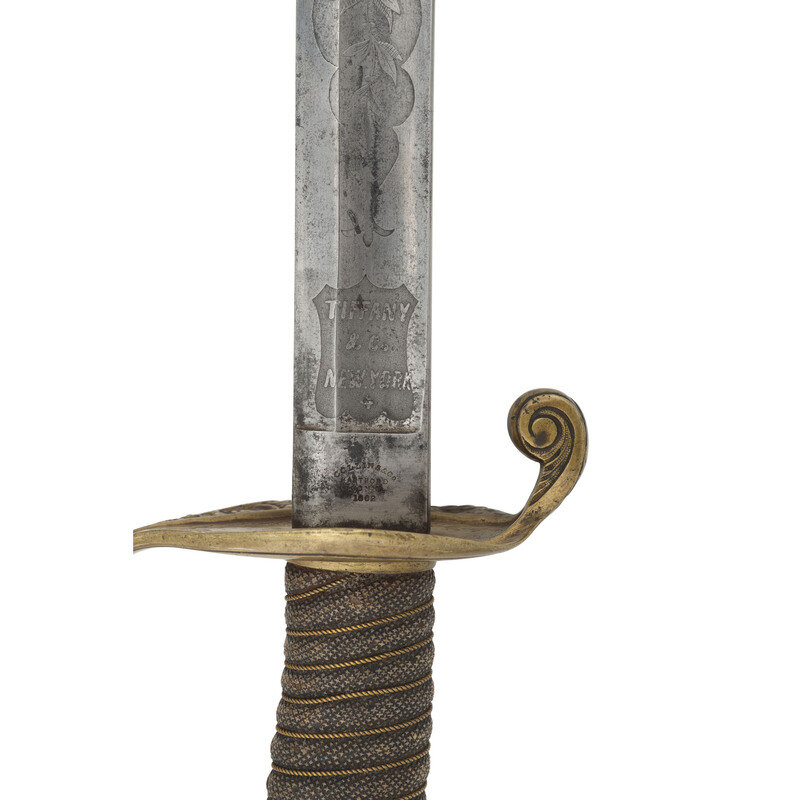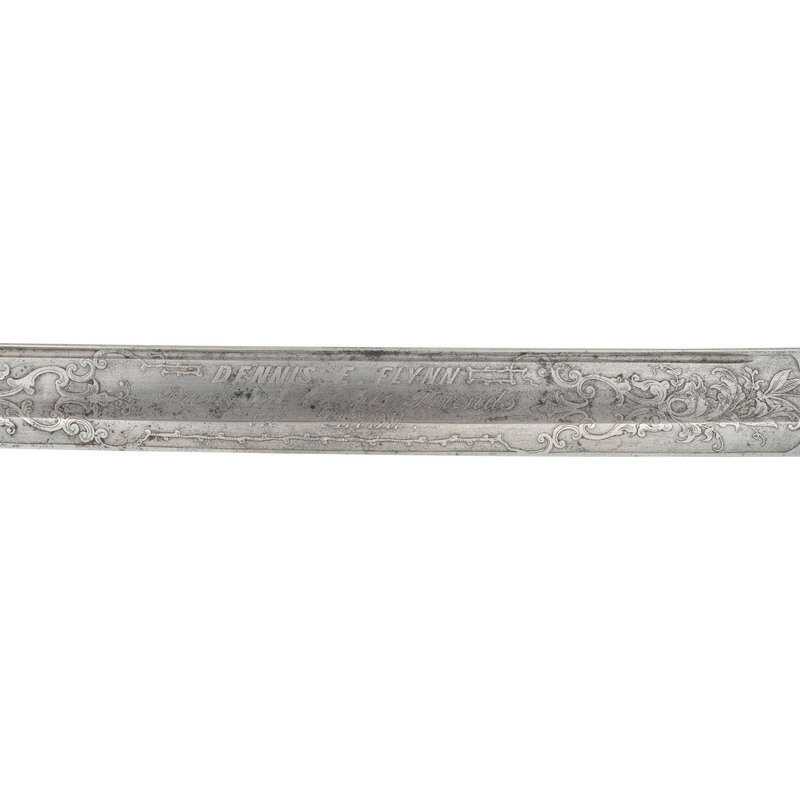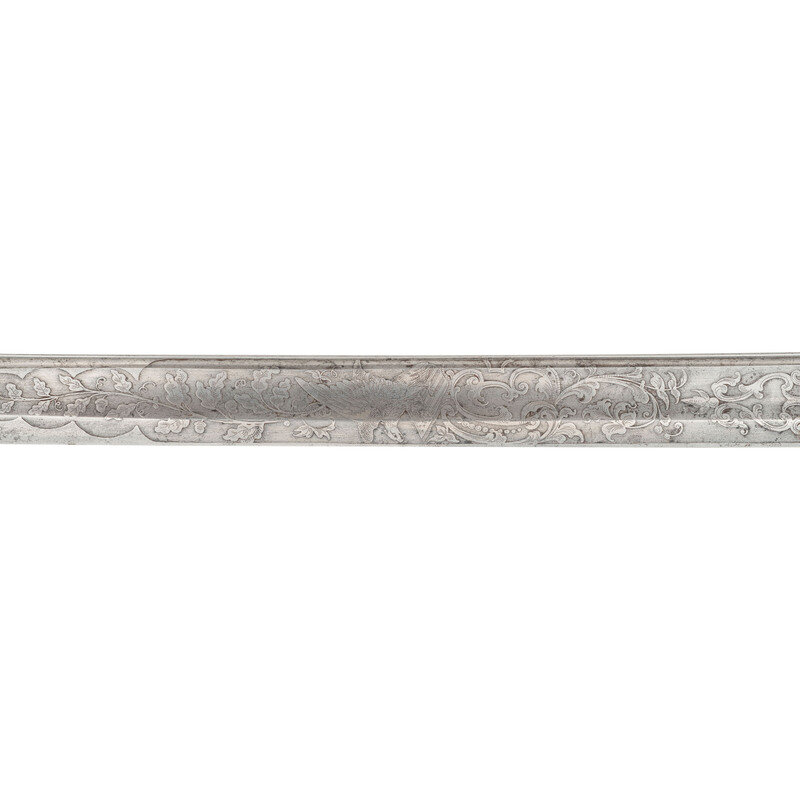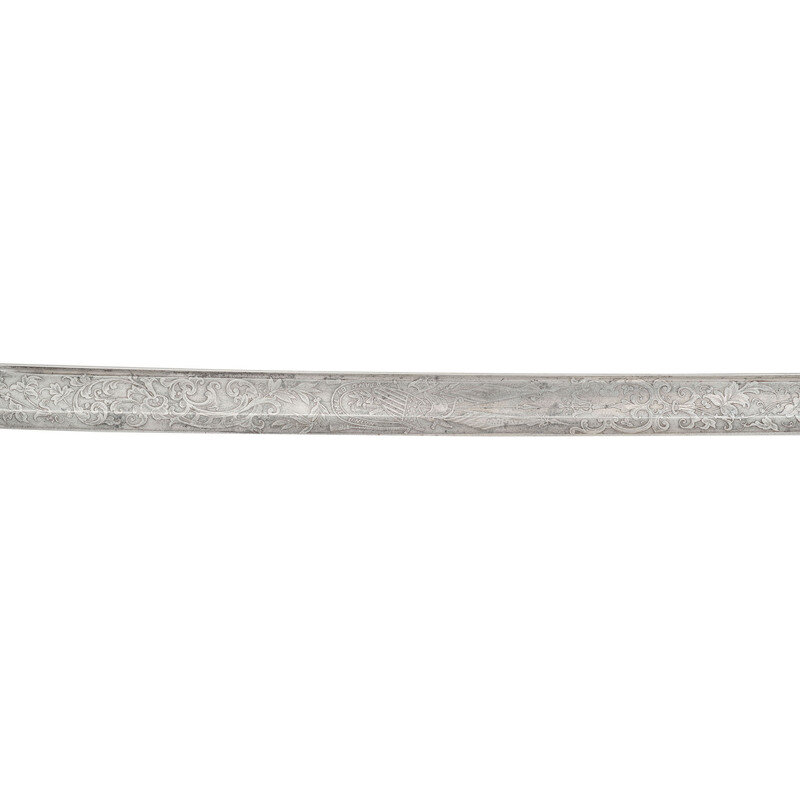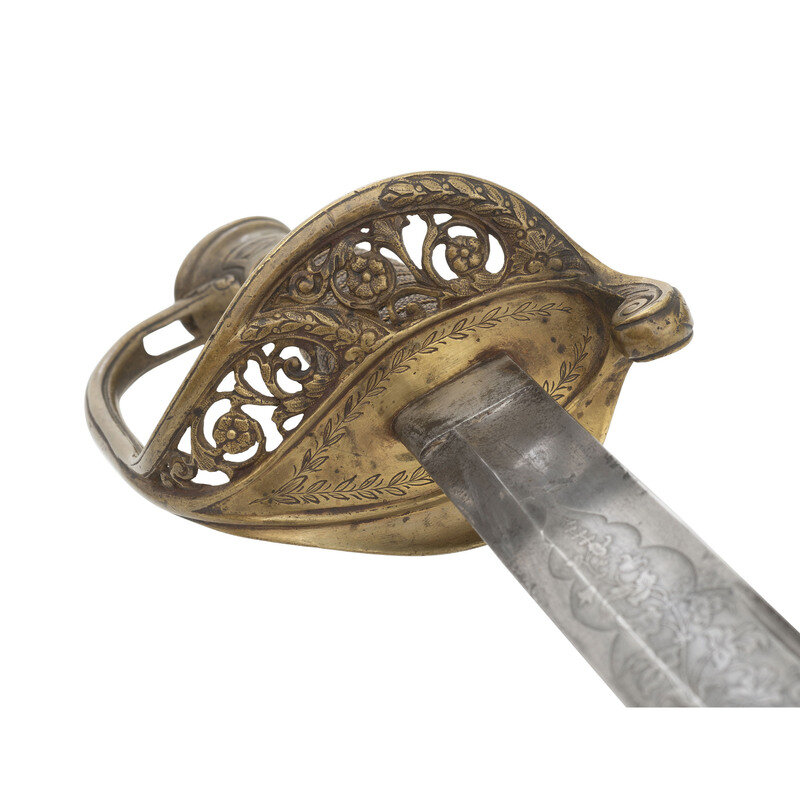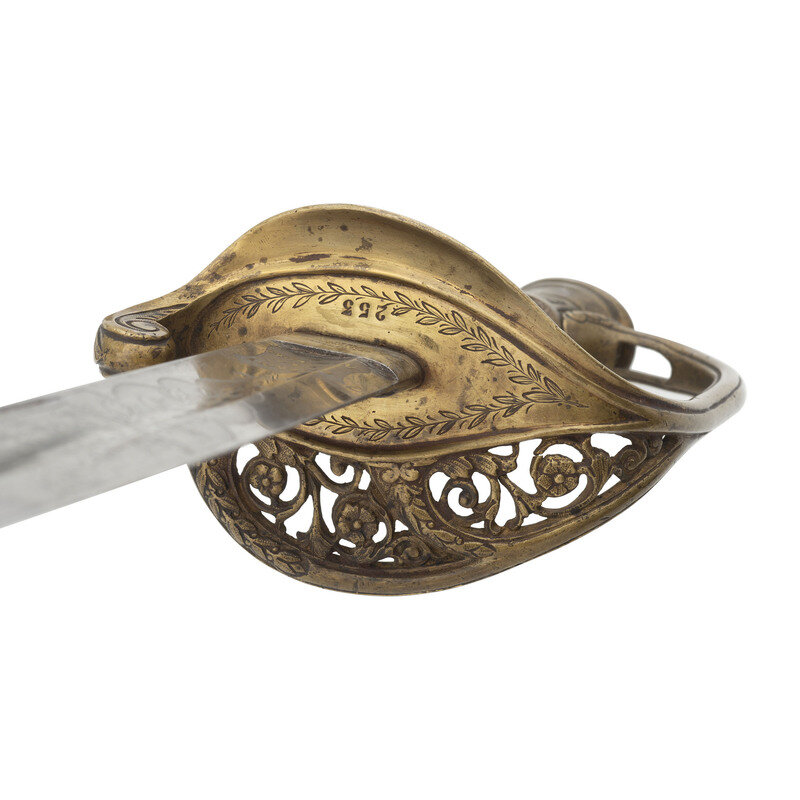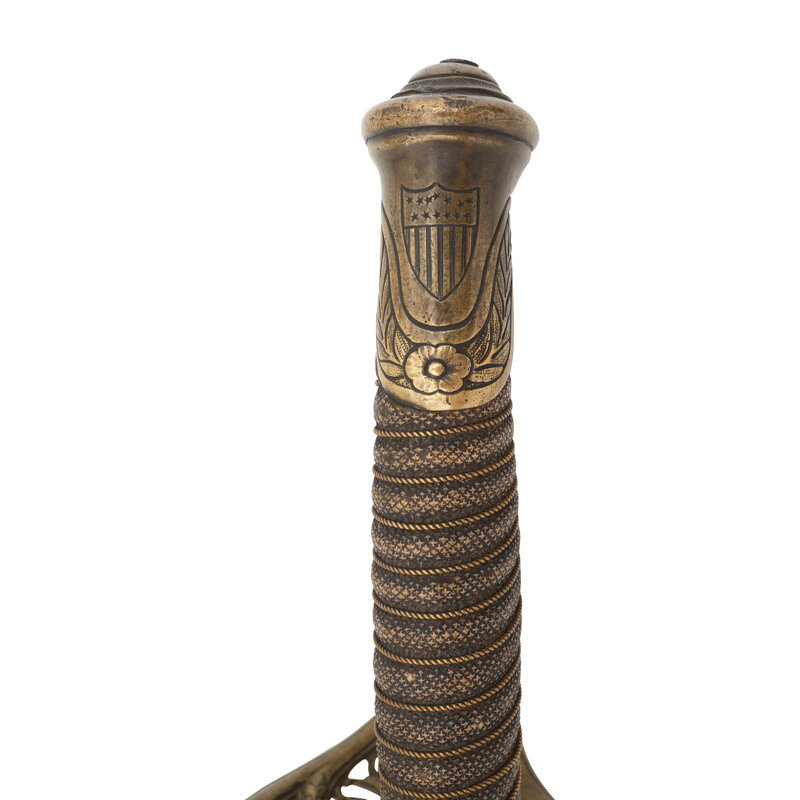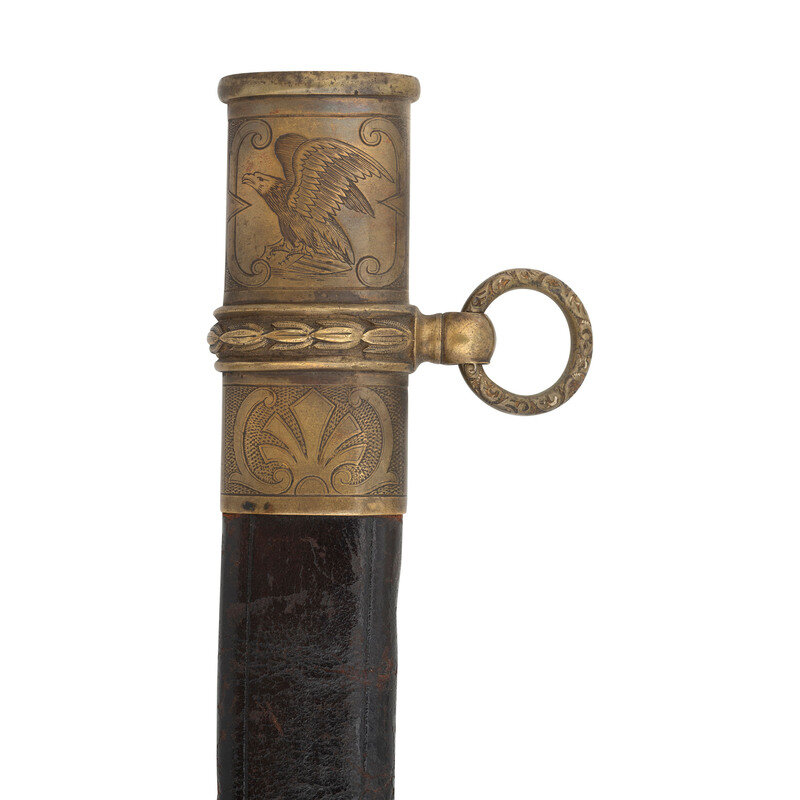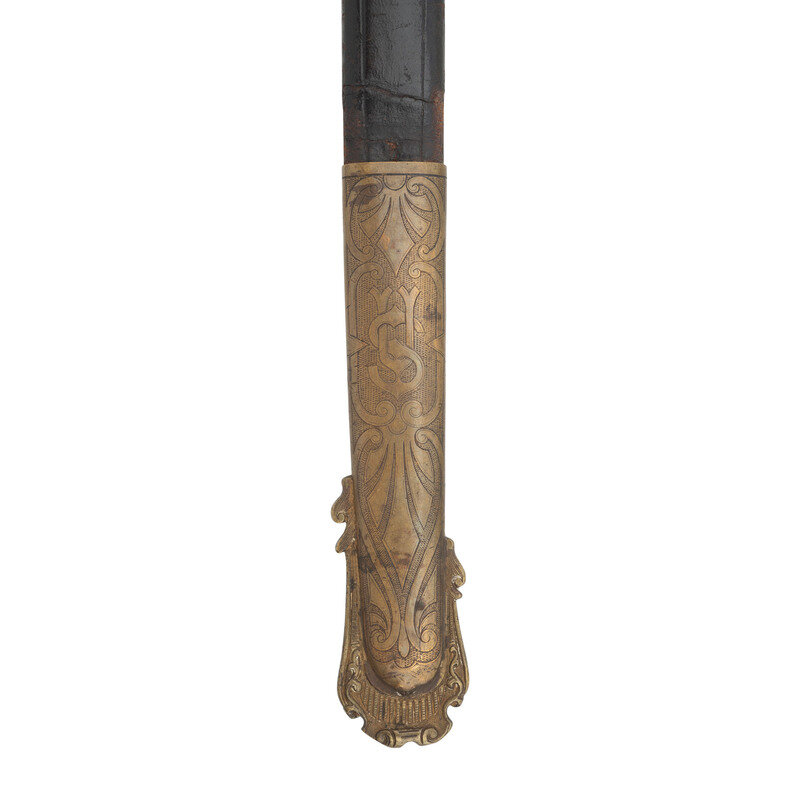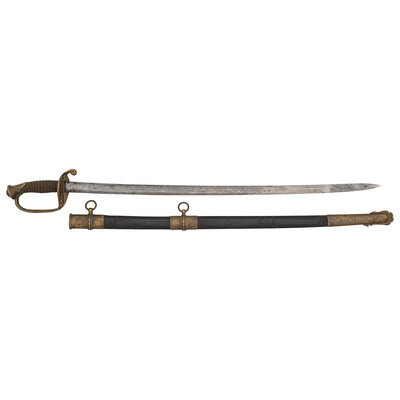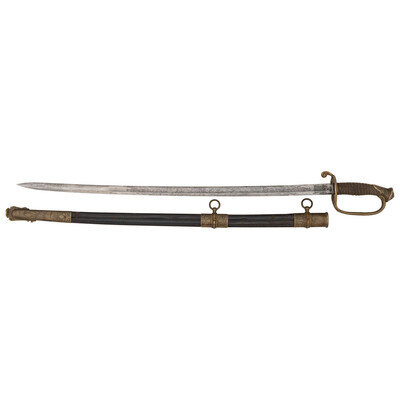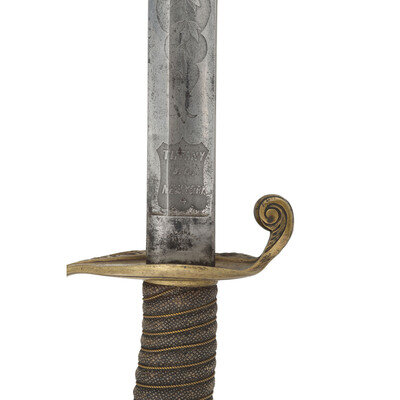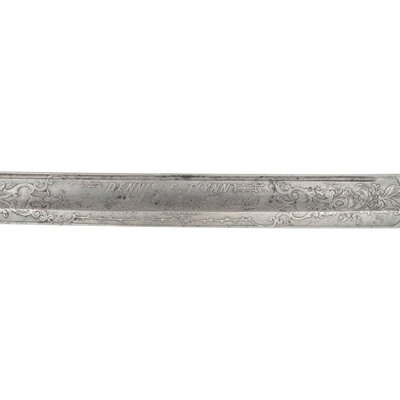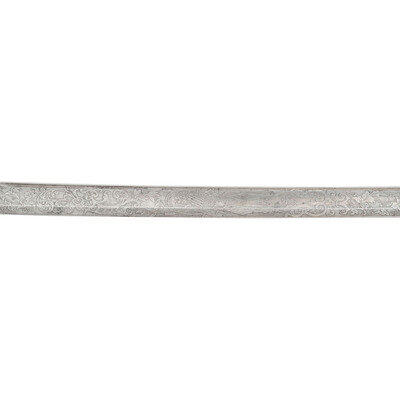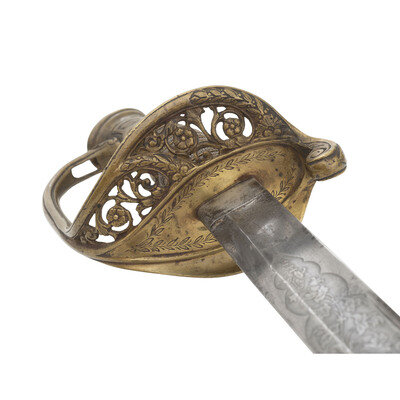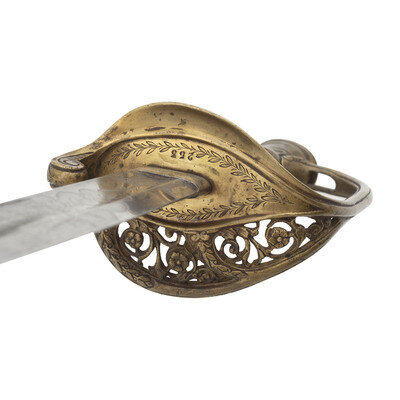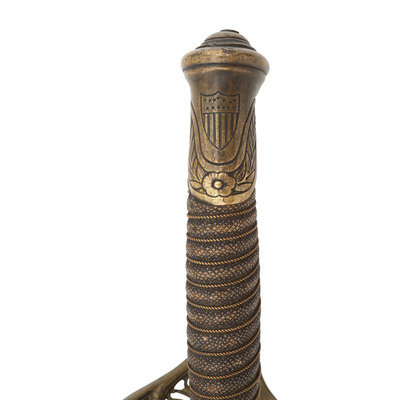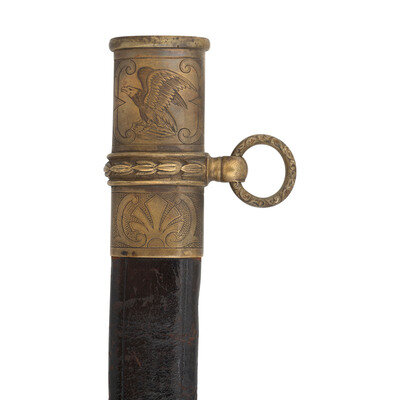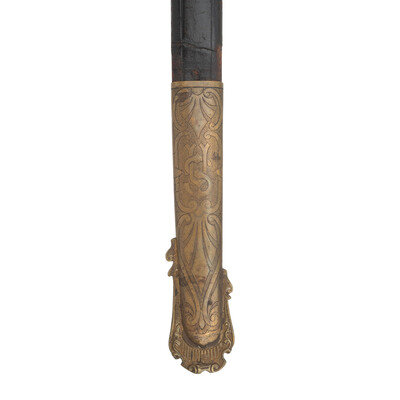32" slightly curved single-edged spear point blade with a 22" stopped median fuller. 1.125" wide blade with a narrow 16" fuller along the spine. 38" in overall length, with a 6" hilt. Gilt brass guard with openwork foliate designs and thistles engraved on the face of the guard and the number 255 stamped in the face as well. Grooved wood grip with shagreen cover with fourteen wraps of twisted brass wire. Reverse ricasso stamped COLLINS & CO/HARTFORD/CONN/1862. Blade with 19" etched panel with foliate scrolls, martial and patriotic themes, including panoplies of arms, a Shield of Columbia with Stand for the Union in a ribbon below it, and a striking eagle with a Shield of Columbia in its talons. The reverse of the blade is further etched as the central figure in the panel DENNIS E. FLYNN/Presented by his Friends/in Clyde. The sword is accompanied by its black leather scabbard with engraved gilt brass mounts. The scabbard body is decorated with incised lines and has a rear seam. The sword is accompanied by a large binder of information and research regarding Flynn and his service, copies of records and research, etc. The binder also includes Flynn's original discharge from the army.
Dennis Flynn (1832-1873) was born in Ireland and emigrated to New York where he settled in Clyde and and worked as a saloon keeper. He enlisted on August 23, 1862 and was commissioned the 1st lieutenant of Company K of the 138th New York Volunteer Infantry which was subsequently designated the 9th New York Heavy Artillery. The regiment was initially sent to the defenses of Washington and received their new designation as the 9th NY Heavy Artillery on December 19, 1863. The regiment was one of the many "heavies" that were pulled from the Washington defenses in the spring of 1864 to serve as infantry in the field as part of Grant's Overland Campaign. The regiment subsequently fought at the Battle of North Anna, Battle of Totopotomoy Creek, Cold Harbor and Bethesda Church. They were involved in the initial Siege of Petersburg and fought at the Jerusalem Plank Road and at Monocacy. They then moved to the Shenandoah Valley and fought at Summit Point, 3rd Winchester, Fisher's Hill and Cedar Creek. They then returned to the siege lines around Petersburg, after a brief stop in the defenses of Washington. The regiment was involved its the final assault and breakthrough at Petersburg in April of 1865, followed by the Battles of Amelia Springs and Sayler's Creek, and was present at Appomattox for Lee's surrender. Flynn was promoted to captain on October 15, 1864 and was mustered out of service on July 6, 1865. Flynn died in 1873 at the age of 40.
